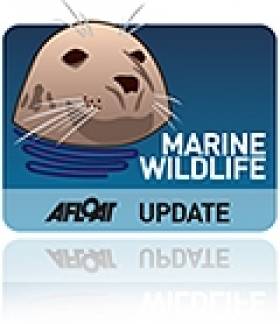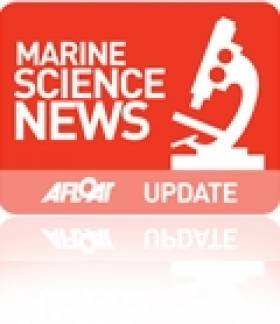Displaying items by tag: Seabirds
Scientists Tracking Seabirds by GPS
A new EU-funded project is tracking the movements of seabirds along the Atlantic coastlines of Ireland, the UK, France, Spain and Portugal.
The Future of the Atlantic Marine Environment (FAME) project aims to pinpoint areas that are important for Europe's seabirds. This knowledge may assist in the selection of marine conservation areas to protect declining species.
According to Surfbirds News, the researchers are taping tiny GPS trackers to the backs of seabirds, allowing the scientists to accurately pinpoint their movements between the birds' nesting colonies and the areas of sea they use to find food.
"Up to now we've known very little about the movements of these birds when they venture out to sea to find food," said seabird scientist Dr Ellie Owen. "But now, just when these birds need our help, we're on the cusp of filling this information void with vitally-important data."
Surfbirds News has more on the story HERE.
Ferry Operator Assists in Marine-Life Conservation Role
Fastnet Line which runs the Cork-Swansea port route on the Celtic Sea, is assisting the charity MarineLife to monitor cetaceans, writes Jehan Ashmore.
The work of MarineLife is to survey the population trends and track the movements of dolphins, whales, porpoises and other wildlife. The research is undertaken onboard Fastnet Line's Julia (1981/21,699grt) and access to the ferry is provided free-of-charge to the wildlife-based charity.
During the months of July and August the ferry's schedule will allow for further opportunities to conduct daylight sightings of marine-life which is to be posted on MarineLife and Fastnet Line websites.
Adrian Shephard, Chairman of MarineLife Trustees, said: "The route from Swansea to Cork crosses a range of marine habitats and we hope it will generate many sightings of cetaceans and seabirds, including two important species we monitor, the white-beaked dolphin and the balearic shearwater".
In addition monitors recently observed fin whales, the second largest whale on the planet. Such sightings provide vital information and this will contribute to a better understanding of the distribution of cetaceans and other marine life in the Celtic Sea. To read more www.marine-life.org.uk
The first of four summertime surveys is to take place on 10 July. Overall the research by MarineLife is part of a larger project which also involves the use of other ferries operating in the Irish Sea and those serving on UK continental routes.
The 1,500 passenger / 325 car-carrying Julia sails year-round six times a week between September to June and from next month and during August the vessel will provide eight sailings per week. For fares and sailings schedules contact www.fastnetline.com






























































